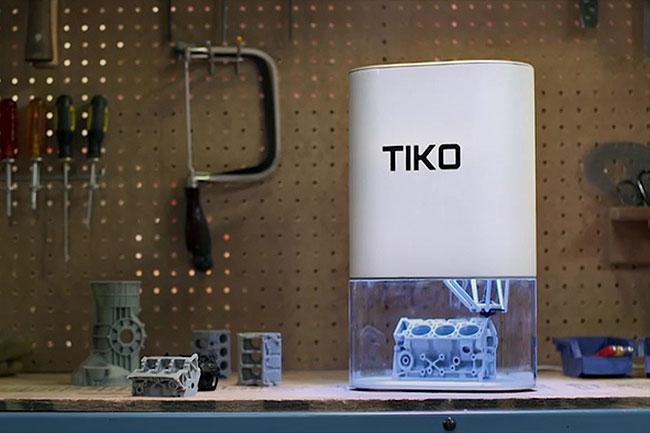
Sadly it turns out that you’ll be waiting a lot longer for it, while that “dependable” description can also be discarded. And that $179 investment isn’t sounding such good value, either.
That’s because Tiko, the “Unibody 3D printer” is the latest casualty in a spate of high-profile Kickstarter 3D printer projects. Despite having raised a whopping $2,950,874 against a $100,000 funding goal, the printer’s creators have taken to Kickstarter to reveal that the project is, for all intents and purposes, cancelled. Although the creators claim to have shipped 4,100 printers out (a total of 16,538 backers pledged money) it seems that’s where it might end.
“We had no idea how difficult it would be to go from a prototype to mass production,” Tiko’s creators wrote in an update. “We learned along the way, but most mistakes were costly and irreversible. Our greatest mistake was committing to inventory too soon. We didn’t realize it at first, but by ordering components in bulk, we had backed ourselves into a corner. Design flaws appeared, and we were trapped. By the time we understood our predicament, it was already too late. We were in too deep, and there was no turning back. Our cheerful mission to empower innovators had become a struggle to survive.”
Now, the team says it is speaking with investors, but acknowledges that “these discussions cannot be rushed. It’s a lengthy process, and it could take months for us to reach something conclusive.” They promise an update at some point in the future.
It’s just the latest in a terrible run of crowdfunded 3D printers which, for reasons of both price and features, sounded almost too good to be true — and then turned out to be exactly that.
“If you go through the top 20 crowdfunded 3D printer campaigns and examine who succeeded versus who didn’t, there’s not a huge success rate for the top campaigns,” Michael Armani, CEO and cofounder of 3D printing company M3D, which raised $3.8 million on Kickstarter, told Digital Trends. “We’re observing the industry going to chaos. It’s one company after another that’s going down. A lot of people say we should be happy as one of the survivors, but the truth is that I’m sad. I’m really disappointed to see so many companies failing. Kickstarter has really become the wild west in a lot of ways.”
While companies like M3D have delivered on the promise of affordable 3D printers, Armani is correct in observing that crowdfunded 3D printers are looking like an increasingly toxic investment for backers. Any time you get into a tech “race to the bottom” things aren’t looking good — and, sadly, it seems that this is the paradigm we’re stuck in right now.
The mismanaged Tiko is just the latest example of that effect. And its out-of-pocket backers are the victims.


